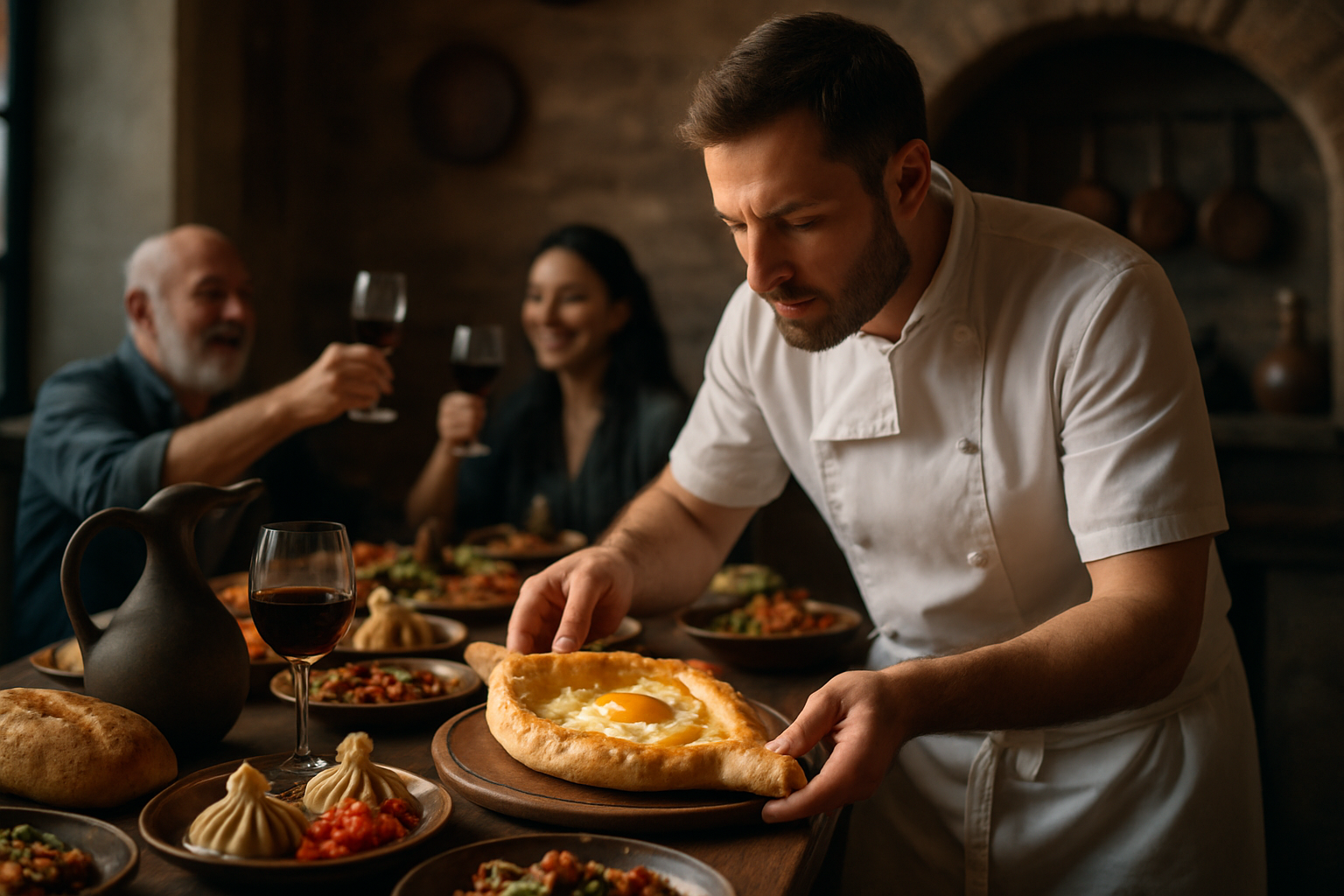Culinary Couchsurfing: The Delicious Fusion of Food and Friendship
Imagine stepping into a stranger's home in a foreign land, not just for a place to sleep, but for a gastronomic adventure that tantalizes your taste buds and broadens your cultural horizons. This is the essence of culinary couchsurfing, a trend that's redefining how travelers experience local cuisine and forge meaningful connections. It's more than just a free meal; it's an immersive journey into the heart of a culture, one dish at a time. As travelers seek more authentic and personal experiences, culinary couchsurfing offers a unique blend of hospitality, cultural exchange, and epicurean exploration.

The idea gained traction as travelers began to seek more authentic and immersive cultural experiences. Instead of dining at tourist-oriented restaurants, culinary couchsurfers desired to taste home-cooked meals prepared by locals. This trend aligns with the growing interest in food tourism and the desire for more personal, off-the-beaten-path travel experiences.
How Culinary Couchsurfing Works
Culinary couchsurfing operates through various online platforms and communities. Travelers can connect with local hosts who are willing to prepare a meal, teach a cooking class, or simply share their favorite local eateries. Some platforms focus exclusively on culinary experiences, while others incorporate food-sharing as part of a broader hospitality exchange.
The process typically involves creating a profile, browsing potential hosts or guests, and arranging a meetup. Safety measures, such as user reviews and verification processes, are often in place to ensure a positive experience for all parties involved. Some platforms operate on a reciprocal basis, where users are encouraged to both host and be hosted, fostering a global community of food lovers and cultural enthusiasts.
The Benefits of Culinary Couchsurfing
For travelers, culinary couchsurfing offers an unparalleled opportunity to taste authentic, home-cooked local cuisine. It provides insights into cooking techniques, ingredients, and cultural traditions that are often overlooked in conventional tourist experiences. Moreover, it allows for genuine interactions with locals, leading to deeper cultural understanding and potentially long-lasting friendships.
Hosts benefit from the opportunity to showcase their culinary skills, share their culture, and meet people from around the world without leaving their homes. It’s a chance to practice language skills, exchange recipes, and gain new perspectives through conversations with diverse travelers.
From a broader perspective, culinary couchsurfing promotes cultural exchange and understanding. It breaks down stereotypes and fosters connections between people from different backgrounds, united by their love of food and curiosity about other cultures.
Challenges and Considerations
While culinary couchsurfing offers numerous benefits, it’s not without challenges. Food allergies and dietary restrictions can complicate meal planning and require clear communication between hosts and guests. Cultural differences in dining etiquette and expectations need to be navigated sensitively.
There’s also the matter of safety and trust. Meeting strangers in their homes or inviting them into yours requires a level of trust that some may find uncomfortable. Platforms try to mitigate these concerns through verification processes and review systems, but users must still exercise caution and common sense.
Additionally, the rise of culinary couchsurfing has led to discussions about its impact on local food businesses and the potential for commercialization of what began as a grassroots movement. As the trend grows, maintaining its authenticity and community-driven spirit becomes increasingly important.
The Future of Culinary Couchsurfing
As travel trends continue to evolve towards more personalized and authentic experiences, culinary couchsurfing is poised for growth. The COVID-19 pandemic temporarily halted in-person exchanges but also sparked interest in virtual cooking classes and meal-sharing experiences, suggesting adaptability in the concept.
Looking ahead, we may see more specialized platforms catering to specific dietary needs or culinary interests. Integration with other travel services, such as accommodation booking or tour planning, could create more comprehensive cultural exchange experiences.
The future may also bring increased regulation as the practice becomes more widespread, potentially addressing concerns about food safety and the informal economy. However, the core appeal of culinary couchsurfing – the human connection forged over a shared meal – is likely to endure, continuing to offer travelers a unique and delicious way to explore the world.
Spice Up Your Culinary Couchsurfing Adventure
• Research local food customs and etiquette before your trip to avoid cultural faux pas
• Offer to contribute ingredients or help with meal preparation as a gesture of goodwill
• Learn a few key phrases in the local language related to food and dining
• Bring a small, culturally appropriate gift from your home country to share with your host
• Document your experience (with permission) and share recipes to keep the cultural exchange going
• Be open-minded about trying new foods, but communicate any dietary restrictions clearly
• Consider hosting travelers in your own home to complete the cycle of cultural exchange
Culinary couchsurfing represents a fascinating intersection of technology, travel, and human connection, all centered around the universal joy of sharing a meal. It offers a unique way to explore the world’s cuisines while fostering cross-cultural understanding and friendship. As travelers increasingly seek authentic, immersive experiences, culinary couchsurfing stands out as a delicious adventure that nourishes both body and soul, one home-cooked meal at a time.





